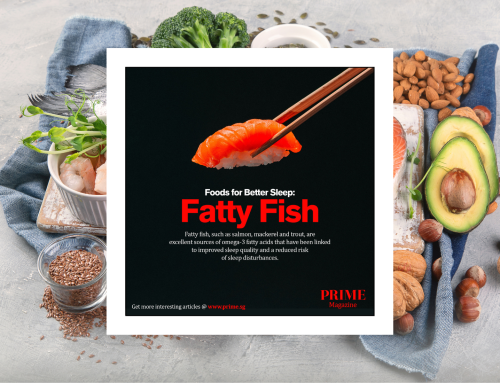
The world’s most popular beverage, coffee, has carved its place as a comforting morning ritual, a midday pick-me-up, and even an instrument of social connection. Its rich flavors and invigorating aroma can awaken our senses and enhance our productivity. However, as with any indulgence, there’s a delicate line between enjoyment and excess. While moderate coffee consumption has been linked to an array of health benefits, it’s imperative to recognize that too much of a good thing can have its drawbacks.
The Benefits of Coffee
Coffee can help people feel less tired and boost energy levels
Coffee contains the stimulant caffeine, which is the most commonly consumed psychoactive substance in the world. After coffee is consumed, caffeine is absorbed into the bloodstream and travels into the brain where it blocks an inhibitory neurotransmitters like norepinephrine and dopamine increases, leading to enhanced firing of neurons.
Coffee keeps you away from Alzhiemer’s and dementia
Caffeine helps prevent the formation of amyloid plaques and neurofibrulary tangles in the brain – two hallmarks of Alzheimer’s. In addition, both caffeine and polyphenols reduce inflammation and decrease the deterioration of brain cells – especially in the hippocampus and cortex, the area of the brain which are involved in memory.
Coffee makes you happy!
According to a research conducted by Harvard School of Public Health, coffee can help people more positive in life. Coffee stimulates the central nervous system by increasing the production of neurotransmitters in the brain, such as noradrenaline, serotonin and dopamine, which also helps prevent depression (but not cure it!). To take advantage of this benefit, you need to drink 2 -4 cups of coffee everyday. Tea or chocolates work too!
Coffee helps prevent type 2 diabetes
Coffee may actually lower your risk for developing type 2 diabetes. Coffee contains polyphenols which have antioxidant properties widely believed to help inflammatory illnesses, such as type 2 diabetes, and anticarcinogenic (anti cancer) properties. Coffee also contain mineral such as magnesium and chromium. A greater intake of magnesium has been linked with lower rates of type 2 diabetes. This may suggest how the blend of these nutrients can be helpful for improving insulin sensitivity. For those who already have type 2 diabetes, coffee can have adverse effects instead!
Coffee enhances your physical performance
A cup of coffee before a workout jolts athletic performance, especially in endurance sports like distance running cycling. Caffeine increases the number of fatty acids in the bloodstream, which allows the muscles to absorb and burn those fats for fuel, therefore saving the body’s small reserves of carbohydrates for later on in the exercise. Have a cuppa of coffee before hitting the gym.

What Happens If You Drink Took Much Coffee?
For many, the allure of coffee lies in its ability to provide a jolt of energy and heightened alertness. However, like any good thing, moderation is key. When it comes to coffee consumption, excessive intake can lead to a range of effects that might not align with your wellness goals. Let’s explore what happens when you drink too much coffee and why it’s essential to strike a balance.
1. Increased Heart Rate and Jitters: One of the most immediate effects of consuming too much coffee is an increased heart rate and a jittery feeling. This is due to the caffeine content in coffee, which is a natural stimulant. When consumed in excess, caffeine can lead to overstimulation of the central nervous system, causing a racing heart and a general sense of restlessness.
2. Insomnia and Disrupted Sleep: Caffeine’s stimulating effects can linger in your system for hours after consumption. If you consume too much coffee, especially in the latter half of the day, it can interfere with your ability to fall asleep and have a restful night. Insomnia and disrupted sleep patterns are common consequences of excessive caffeine intake.

3. Digestive Discomfort: Caffeine can also have a laxative effect on some individuals. Drinking too much coffee might lead to gastrointestinal discomfort, including acid reflux, stomach upset, and even diarrhea. This is particularly true for those who have sensitive stomachs or are prone to digestive issues.
4. Increased Anxiety and Nervousness: While moderate coffee consumption can enhance mood and alertness, excessive intake can lead to increased anxiety and nervousness. Caffeine is known to trigger the release of stress hormones like cortisol, which can contribute to heightened feelings of anxiety and unease.
5. Dehydration and Urinary Frequency: Caffeine has a diuretic effect, which means it can increase urine production and potentially lead to dehydration if not balanced with adequate water intake. Excessive coffee consumption can result in frequent trips to the restroom and the risk of fluid imbalances.

6. Heart Palpitations and Blood Pressure Spikes: For some individuals, consuming too much caffeine can lead to heart palpitations, a sensation of irregular heartbeats. Additionally, excessive coffee intake can cause temporary spikes in blood pressure, which can be problematic for those with pre-existing heart conditions.
7. Gastroesophageal Reflux Disease (GERD): Excessive coffee consumption can exacerbate symptoms of GERD, a condition where stomach acid flows back into the esophagus, causing discomfort and heartburn. The combination of coffee’s acidity and its relaxing effect on the lower esophageal sphincter can worsen GERD symptoms.
8. Dependency and Tolerance: Regularly drinking excessive amounts of coffee can lead to caffeine dependency, where your body becomes accustomed to the stimulating effects. This can result in the need for larger quantities of coffee to achieve the same level of alertness, contributing to a cycle of increased consumption.

9. Negative Impact on Bone Health: High caffeine intake, particularly in the absence of sufficient calcium intake, can potentially have a negative impact on bone health. Excessive coffee consumption might lead to decreased calcium absorption and contribute to brittle bones over time.

10. Withdrawal Symptoms: If you suddenly cut back on coffee after consuming it excessively, you might experience withdrawal symptoms such as headaches, irritability, fatigue, and difficulty concentrating. This underscores the potential addictive nature of caffeine.
While coffee offers a range of health benefits when consumed in moderation, excessive intake can lead to a variety of adverse effects. It’s important to be mindful of your coffee consumption and to find a balance that works for your body and lifestyle. If you find yourself experiencing negative effects due to excessive coffee consumption, it might be a good idea to gradually cut back and consult a healthcare professional if needed. As with many aspects of life, moderation is the key to reaping the benefits without the unwanted consequences.










